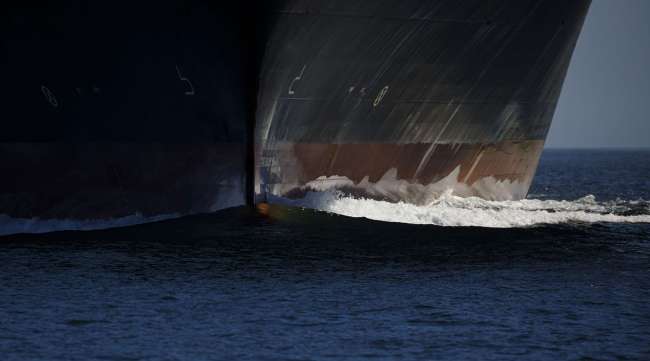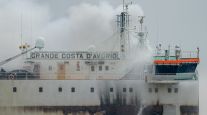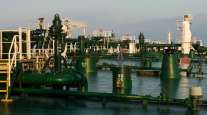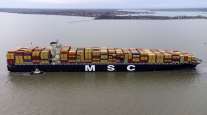Cargill Looks to Use Sails on Cargo Ships to Burn Less Fuel

[Stay on top of transportation news: Get TTNews in your inbox.]
Commodities giant Cargill Inc. is looking to add wind-power capability on future cargo ships, after experimenting with sails that made a large vessel greener.
The world’s top agricultural trader chartered the 80,000-ton Pyxis Ocean bulk carrier, which last year was fitted with two so-called WindWings made from steel and composite glass. Using the 123-foot-high structures to harness the wind should save 3 tons of fuel on average each day, Cargill says.
Vessels carry roughly 80% of world trade and are a big source of emissions, with the majority of the shipping industry running on fuels made from crude oil and spewing out about 1 billion tons of CO2 each year. The sector’s global regulator last year set new climate goals, and the European Union recently introduced a charge on carbon emissions. But so far, progress on cleaning up shipping has been relatively limited.
Using sails can potentially have an even bigger impact when installed on vessels that can also run on low-carbon marine fuels, like green methanol, according to Jan Dieleman, president of Cargill’s ocean transportation business.
“Technologies that harness the wind could be an important, cost-effective way to achieve our decarbonization goals in the short, medium and long term,” he said.
Cargill is involved with five large ships that are on order and can run on green methanol and is “actively looking” at having some kind of wind-assisted propulsion installed, Dieleman said. He cautioned that wind does have limits, partly because it doesn’t work for all trade routes.
Sails are unlikely to be widely adopted across all classes of shipping and for all fuel types in the near term, limiting the environmental benefits the technology offers. It is more likely to be taken up for those burning more expensive fuels where the cost savings are greatest.
The trader has said one of the advantages of the sails is the way they can be added to existing ships, not just new ones. Other companies have also invested in wind technology for vessels.
Using the price of very low-sulfur fuel oil — a common ship fuel — in Rotterdam on March 11, the reduction in fuel use from the Pyxis Ocean’s WindWings would save about $1,700 a day, according to Bloomberg calculations, which are based on average fuel savings of 3 tons a day.
Cargill ranks No. 18 on the Transport Topics list of agriculture and food processing carriers.
Want more news? Listen to today's daily briefing below or go here for more info:




